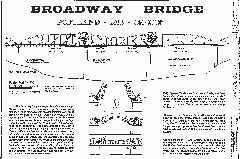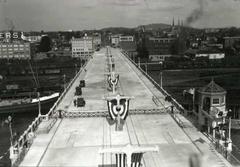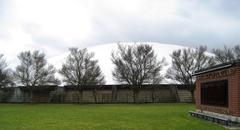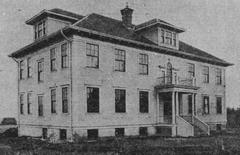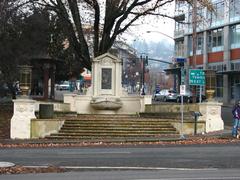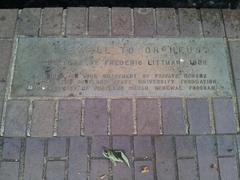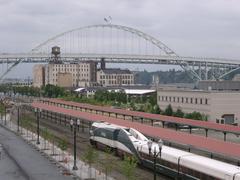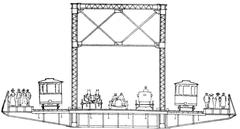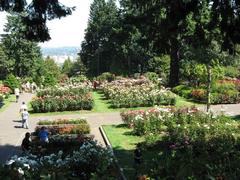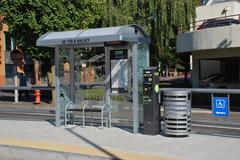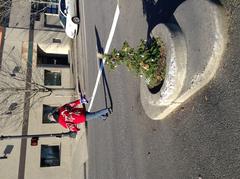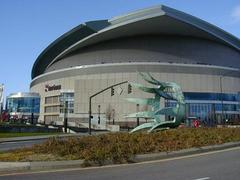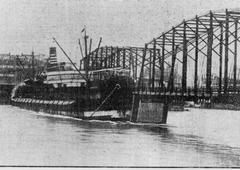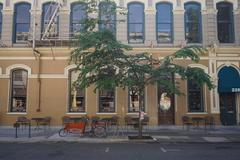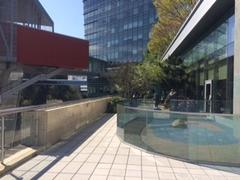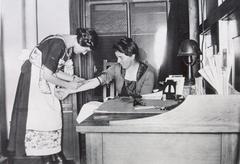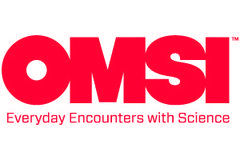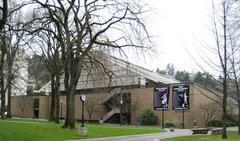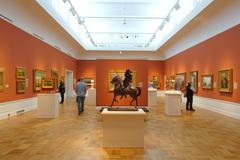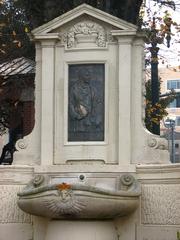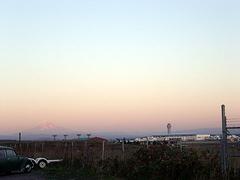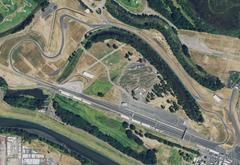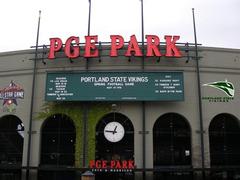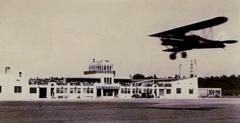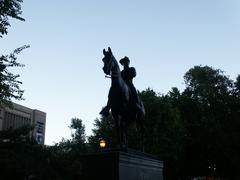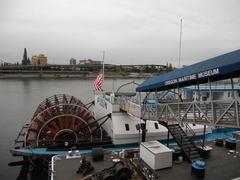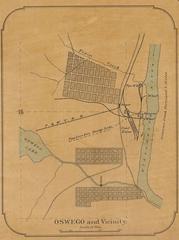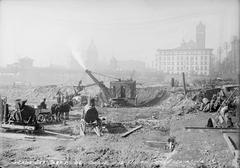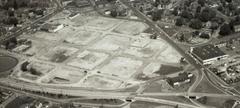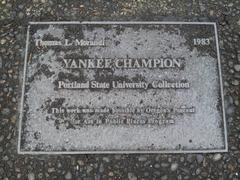Wellington Park Portland: Visiting Hours, Tickets, and Historical Sites Guide
Date: 04/07/2025
Introduction: Wellington Park’s Historical and Cultural Significance
Located in Portland’s Roseway neighborhood, Wellington Park is a treasured urban green space blending a rich historical legacy with modern amenities. Established in 1941 as part of Portland’s public parks expansion inspired by the 1903 Olmsted Plan, the park showcases the city’s longstanding commitment to accessible, inclusive recreation (Wikipedia; Portland.gov). Spanning nearly 4 acres, Wellington Park has evolved from simple playgrounds and open lawns into a vibrant community hub with a splash pad, paved paths, and event infrastructure.
Offering everything from tranquil morning walks and family picnics to popular events like summer concerts and “Movies in the Park,” the park’s accessible design—including paved pathways and inclusive play equipment—ensures all guests feel welcome (Portland.gov; Portland Sunday Parkways). Its proximity to cultural highlights like the Alberta Arts District and Fernhill Park makes it an ideal starting point for exploring Northeast Portland’s diverse attractions.
This comprehensive guide details Wellington Park’s history, visiting hours, amenities, accessibility, community events, and travel tips. Whether you’re a local or a visitor, Wellington Park exemplifies Portland’s values of inclusivity, sustainability, and community spirit (Urban Abroad; snoflo.org).
Table of Contents
- Welcome: Wellington Park at a Glance
- Historical Overview
- Visiting Information
- Events and Community Life
- Preservation and Future Outlook
- Planning Your Visit
- References
Welcome: Wellington Park at a Glance
Situated in the heart of Roseway, Wellington Park is a beloved neighborhood retreat. Its blend of natural landscapes and contemporary features appeals to all ages, offering open lawns, shaded areas, play equipment, and a splash pad. The park’s welcoming atmosphere and regular community events make it a highlight among Portland’s public spaces.
Historical Overview
Early Origins and Land Acquisition
Wellington Park’s story began in 1941, when Portland acquired the 3.97-acre parcel to meet the recreational needs of a rapidly growing Northeast Portland (Wikipedia). This move was in line with the city’s early-20th-century efforts, rooted in the Olmsted Plan, to integrate parks into urban neighborhoods and provide all residents with access to green spaces (Wikipedia: List of parks in Portland).
Evolution and Modernization
Initially, Wellington Park featured simple amenities—open lawns, basic playground equipment, and picnic tables. These features made it a central gathering spot for local families. As Northeast Portland evolved demographically, the park expanded its role—hosting sports, seasonal celebrations, and community gatherings. Recent decades brought significant upgrades, most notably the addition of a splash pad in 2021, reflecting Portland’s commitment to inclusive and modern play spaces (Wikipedia). Seasonal events like concerts and movie nights further cement Wellington Park’s place as a community cornerstone.
Significance in Portland’s Park System
Wellington Park’s development mirrors Portland’s overarching approach to urban parks—ensuring equitable access and adapting to changing community needs. As part of a system encompassing hundreds of parks and natural areas, Wellington Park stands out for its balance of historical character and contemporary amenities (Wikipedia: List of parks in Portland). Its ongoing enhancements and inclusive events underscore its lasting importance within the city’s green infrastructure (Portland.gov).
Visiting Information
Hours, Admission, and Accessibility
- Hours: Open daily from 5:00 AM to 10:00 PM (some sections may allow access until midnight; check city notices for updates).
- Admission: Free; no tickets or reservations required.
- Accessibility: Paved, ADA-accessible paths, inclusive play equipment, and accessible picnic seating ensure everyone can enjoy the park (Portland.gov).
Amenities and What to Expect
- Playground: Modern, inclusive play structures for all ages and abilities.
- Splash Pad: Seasonal water play area (mid-May to early autumn).
- Picnic Areas: Tables and benches, plus a covered shelter (first-come, first-served).
- Open Lawns: Ideal for relaxation, frisbee, and informal sports.
- Basketball Court: Paved surface for pick-up games and recreation.
- Restrooms: Seasonal portable restrooms; ADA units available during events.
- Drinking Fountain: Near the playground.
- Waste/Recycling Bins: Throughout the park to support sustainability.
- Bike Racks: Near entrances, reflecting Portland’s bike-friendly ethos.
- Lighting and Safety: Pathway lighting and regular staff patrols ensure a safe environment.
Directions and Nearby Attractions
- Getting There: Accessible by TriMet bus routes; street parking available on NE 66th Avenue and adjacent streets. During events, parking can be limited—public transit is recommended (Portland Sunday Parkways).
- Nearby: Fernhill Park, Alberta Arts District, and Portland Rose Garden offer additional recreation and cultural experiences.
Events and Community Life
Wellington Park is an active community hub, hosting free summer movies, concerts, Sunday Parkways, family picnics, and cultural celebrations (Portland Sunday Parkways; snoflo.org). Collaborations with nonprofits and local associations bring youth lunch programs, fitness clinics, and outdoor education workshops to the park (Portland Parks & Recreation). The park also supports social initiatives, serving as a resource during emergencies and fostering neighborhood advocacy (Urban Abroad).
Preservation and Future Outlook
Ongoing city investments ensure Wellington Park retains its historical charm while meeting contemporary needs. Enhanced safety, regular maintenance, and diverse programming sustain its relevance for future generations. The park’s evolution reflects Portland’s broader commitment to resilient, inclusive, and sustainable public spaces (Portland.gov).
Planning Your Visit
- Best Times: Weekday mornings for tranquility; weekends and event days for vibrant activity.
- Event Participation: Check the official event calendar for updates and accessibility details.
- Etiquette: Leash pets, pack out trash, and respect event guidelines.
- Weather: Dress in layers; bring rain gear or sun protection as needed.
- Accessibility: Contact ADA services before visiting for specific accommodations (Portland.gov).
Frequently Asked Questions (FAQ)
Q: What are Wellington Park’s visiting hours?
A: Open daily from 5:00 AM to 10:00 PM; check for seasonal or event-based changes.
Q: Is there an admission fee?
A: No, the park is free and open to all.
Q: Are pets allowed?
A: Yes, on leashes.
Q: Are restrooms available year-round?
A: Portable restrooms are seasonal; ADA units provided during events.
Q: How do I get there by public transit?
A: TriMet bus routes 24 and 35 serve the area.
Q: Are there guided tours or special events?
A: Guided walks and educational programs are offered seasonally; check the official calendar for details.
Summary and Key Visitor Tips
Wellington Park epitomizes Portland’s vision for inclusive, community-focused green spaces. Since 1941, it has transformed from a simple neighborhood retreat to a dynamic hub for recreation, culture, and civic engagement. With accessible amenities, a packed calendar of events, and connections to broader city attractions, Wellington Park remains an essential part of Portland life. For the latest information, check Portland Parks & Recreation, and consider using the Audiala app for interactive guides and updates.
References
- Wellington Park (Portland, Oregon), Wikipedia, 2025
- List of parks in Portland, Wikipedia, 2025
- Wellington Park, Portland.gov, 2025
- Portland Sunday Parkways, Portland.gov, 2025
- Is Portland Safe?, Urban Abroad, 2025
- Wellington Park, Snoflo.org, 2025
- Portland Historical Resources Inventory, Portland.gov, 2025
- Portland Parks & Recreation, Portland.gov, 2025
- Audiala App Official Site, 2025
